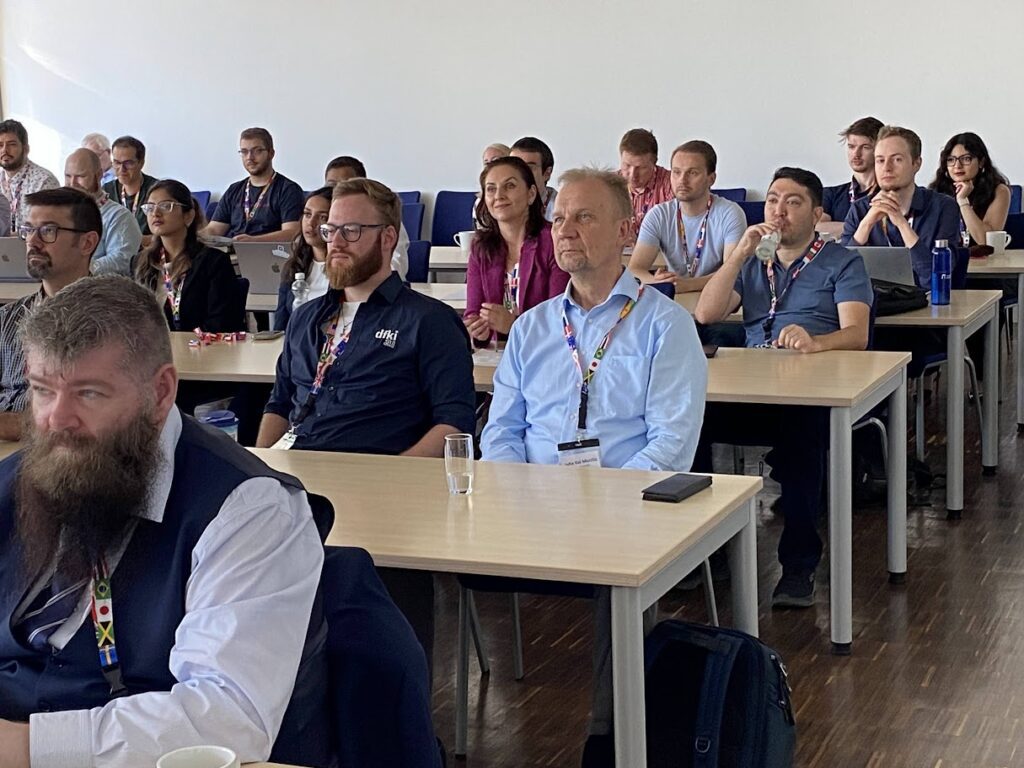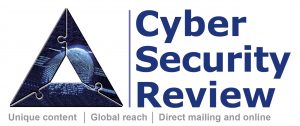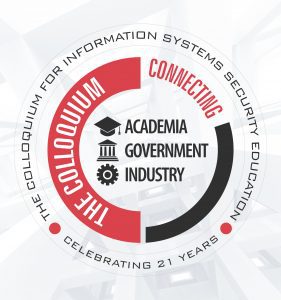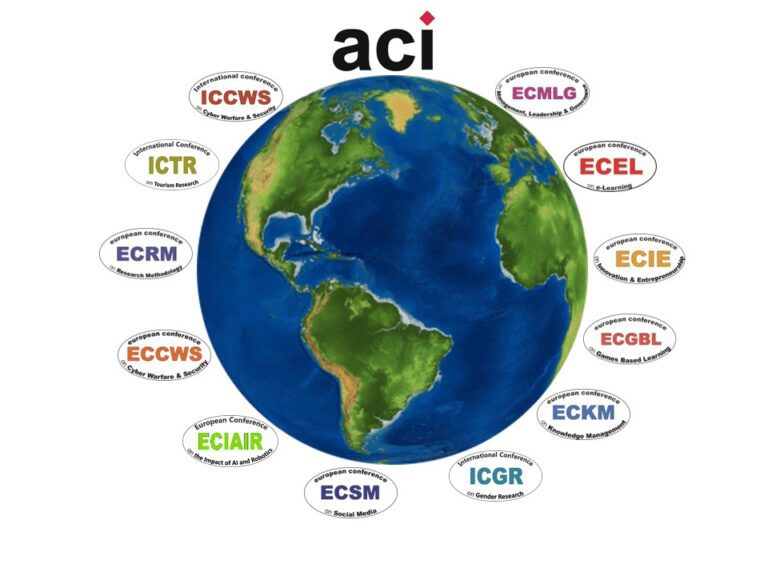5-6 March 2026


Wilmington, USA
ICCWS 2026
21st International Conference on Cyber Warfare and Security
Call for Papers

- Academic Papers
- Case Studies
- Work in-Progress Papers
- PhD Papers
- Masters Papers
- Posters and Presentations
- Non- Academic or Practitioner Contributions
Aims and Scope
ICCWS is an opportunity for academics, military personnel, practitioners and consultants from around the world who are involved in the study, management, development and implementation of systems and concepts to combat information warfare or to improve information systems security to come together and exchange ideas. The call for papers for the ICCWS 2025 conference is asking for contributions that consider the following aims and scope. By covering a wide range of topics, the conference facilitates interdisciplinary dialogue and collaboration, driving forward innovations and improvements in how nations, organizations, and individuals address cyber threats. In addition to this the committee welcomes papers on a number of specialist mini-tracks which can be seen at the end of this list.
Cyber Warfare Strategies and Tactics
- Examination of state-sponsored cyber operations.
- Analysis of cyber deterrence and defence mechanisms.
- Offensive and defensive cyber strategies used in modern conflicts.
- Case studies of significant cyber-attacks and their geopolitical implications.
Cyber Security Technologies and Techniques
- Development and deployment of advanced cybersecurity tools and technologies.
- Network security protocols and architecture, including intrusion detection and prevention systems.
- Cryptographic methods and their application in securing communications.
- Penetration testing or pentesting techniques
Cyber Threat Intelligence
- Methods for gathering and analysing cyber threat intelligence.
- Role of artificial intelligence and machine learning in predicting cyber threats.
- Techniques for identifying and mitigating insider threats.
- Analysis of cyber threat actors, including nation-states, terrorist groups, and cybercriminal organizations.
Information Warfare and Psychological Operations
- Strategies for psychological operations in the cyber domain.
- Use of social media and other digital platforms for information warfare.
- Techniques for combating misinformation and disinformation.
- Impact of information warfare on public opinion and national security.
Legal and Ethical Issues in Cyber Warfare
- Legal frameworks governing cyber warfare and security.
- Ethical considerations in offensive and defensive cyber operations.
- Compliance with international laws and norms.
- Privacy issues and the balance between security and civil liberties.
Cyber Defence and Critical Infrastructure Protection
- Strategies for protecting critical infrastructure from cyber attacks.
- Resilience and recovery planning for cyber incidents.
- Sector-specific challenges in industries such as energy, finance, and healthcare.
- Collaboration between public and private sectors for enhanced cybersecurity.
Emerging Technologies and Future Trends
- Impact of emerging technologies like quantum computing on cybersecurity.
- Future trends in cyber warfare and security.
- Role of the Internet of Things (IoT) in expanding the cyber threat landscape.
- Predictions for the evolution of cyber conflict and defence mechanisms.
Human Factors in Cyber Security
- Role of human behaviour and psychology in cybersecurity.
- Training and awareness programs for improving cybersecurity culture including Cybersecurity Education in both formal and informal settings
- Strategies for mitigating human error and insider threats.
- Social engineering tactics and countermeasures.
Mini Tracks
Cybersecurity at the Digital Frontlines: Strategy, Conflict, and Resilience
Mini Track Chair: Dr. Zakariya Belkhamza, Ahmed Bin Mohammed Military College, Qatar
As digital transformation reshapes national infrastructure, public services, and defence operations, cybersecurity now stands at the core of global security and strategic policy. This mini track explores the evolving frontlines of cyber conflict, where emerging technologies, data ecosystems, and governance frameworks converge to form a complex, dynamic battlespace that demands resilient, coordinated, and ethically grounded responses. Recently, a surge of coordinated cyberattacks on critical infrastructure has exposed systemic vulnerabilities linked to rapid digital modernization. At the same time, global assessments of national cybersecurity strategies continue to reveal persistent gaps between the evolving threat landscape and institutional preparedness. These developments underscore the urgency of integrated policy approaches that align technical capabilities with strategic foresight, adaptive regulation, and international cooperation to enhance resilience across interconnected digital ecosystems. This mini track invites interdisciplinary research on strategic cybersecurity architectures that reflect the complexity of national digital transformation. We seek evaluations of cyber threat readiness, institutional resilience models, and deterrence strategies in multi-domain conflict environments. Contributions on digital trust, data integrity, and the role of cybersecurity in sustaining public confidence are also encouraged. We also welcome critical analyses of emerging global norms, legal frameworks, and ethical considerations in cyber governance. By convening researchers, strategists, and policymakers, this mini track aims to advance collective understanding of how to secure the digital frontlines through holistic design, coordinated policy, and strategic resilience across sectors and borders.
Suggested topics include, but are not limited to:
- Strategic Cyber Architectures in the Digital Age
- National Readiness and Institutional Resilience
- Cyber Policy and Multi-Domain Strategic Competition
- Data Integrity and Digital Trust
- Resilience of Critical Infrastructure in Smart Nations
- Global Cyber Norms and Ethical Governance
AI for Network Security
Mini Track Chair: Christoph Lipps,German Research Center for Artificial Intelligence, Kaiserslautern, Germany
The integration of artificial intelligence (AI) methods into network automation is rapidly reshaping the way digital infrastructures are managed, secured and defended. While AI enables unprecedented levels of efficiency and adaptability, it comes along with new complexities, threats and ethical concerns. This MiniTrack invites original research contributions critically examining the evolving role of AI in interconnected systems, with a particular focus on security, trust and resilience. We welcome contributions addressing intelligent security mechanisms, including AI-based intrusion detection systems, automated threat detection, as well as proactive and reactive defence strategies. Of particular interest are contributions that explore the use of generative AI (GenAI) in cyber security, for example to simulate attack scenarios, identify vulnerabilities or develop adaptive, self-learning defence strategies. Furthermore, the trustworthiness of AI in critical network environments is a central topic. What can be done to ensure transparency, explainability and robustness in AI systems making autonomous decisions in high-risk contexts? What ethical, legal and technical frameworks are needed to guide the responsible use of AI in network infrastructures?
Suggested topics include, but are not limited to:
- Intelligent Network Security
- Generative AI in Cybersecurity
- Trusted AI & Trustworthy AI
- Cyber Resilience & Security
- Ethical, Legal and Technical Frameworks
- Security in Wireless Systems
Cyber Resilience and Innovation Across the Maritime Ecosystem
Mini Track Chair: Dr. Kasey Miller, UNC-Wilmington, USA
As the maritime industry rapidly evolves with the adoption of smart technologies, autonomous vessels, and integrated digital infrastructure, the need for robust cyber resilience has never been greater. This mini track focuses on cybersecurity challenges and innovations spanning the entire maritime ecosystem — from shipboard systems and port operations to global supply chains and regulatory frameworks. The track invites exploration of cutting-edge developments in Artificial Intelligence (AI), Machine Learning (ML), and data-driven decision-making that are reshaping maritime operations. It will highlight the intersection of these technologies with cyber risk, digital forensics, and the protection of critical infrastructure. Discussions will also cover the security of communication, navigation, and sensor systems, alongside the growing landscape of the Maritime Internet of Things (MIoT). Emphasis will be placed on holistic risk management strategies, policy development, and integrating cybersecurity into workforce development and training. The track aims to bridge technical, operational, and regulatory perspectives, promoting dialogue between researchers, practitioners, and policymakers. By bringing together thought leaders from academia, industry, and government, this track seeks to foster innovation while ensuring the resilience and security of maritime systems in an increasingly interconnected world. Topics of interest include, but are not limited to:
- Maritime Autonomy, Robotics, and Smart Systems
- Artificial Intelligence, Machine Learning, and Data-Driven Decision Making
- Cybersecurity, Risk Management, and Digital Forensics in the Maritime Domain
- Communication, Navigation, and Sensor Systems Security
- Maritime Internet of Things (MIoT), Infrastructure, and Emerging Cybersecurity Technologies
- Policy, Regulation, and Workforce Development in Maritime Cybersecurity
Interdisciplinary Research in Cybersecurity
Mini Track Chair: Dr. Char Sample, Marshall University, USA
The dynamic and interconnected nature of cyber security touches and influences many aspects of life. This inter-relatedness suggests that other disciplines might influence, or even possibly impact, cyber events. For example, geo-political events, environmental events, culture, psychology or economic disciplines may offer new ideas on how cyber events are viewed and understood. These disciplines also, provide models and frameworks that, when applied to cybersecurity may possibly provide new solutions to long standing challenges. This track is dedicated to crossing the traditional disciplines of academia and examining cyber events within the context of another academic discipline. Topics of interest include, but are not limited to:
- Decision science and cybersecurity
- Data science in cybersecurity
- Natural disasters and cyber events
- Conflict and cyber events
- Environmental resources and cyber events
- Financial events and cyber events
- Cyber-Physical systems security
- Complexity modelling in cybersecurity
Important Dates
| Abstract submission deadline | STILL ACCEPTING ABSTRACTS |
| Notification of abstract acceptance | 27 August 2025 |
| Full paper due for review | 02 October 2025 |
| Notification of paper acceptance (with any requested changes) | 11 December 2025 |
| Earlybird registration closes | 25 December 2025 |
| Final paper due (with any changes) | 08 January 2026 |
| Final Author payment date | 29 January 2026 |
Keynote Speakers

ROB MAIN
Cyber Threat Briefing

JEFF CRUME
AI: The New Attack Surface
Conference Contacts
| Academic Enquiries | Professor Dan Remenyi |
| Submission Enquiries | Carol Carslake |
| Registration Enquiries | Belinda Burchell |
| Other Enquiries | Elaine Hayne |






